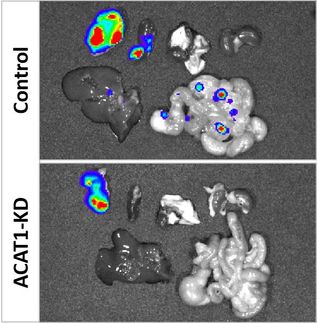Mipomersen Phase 3 Study in Patients with Heterozygous Familial Hypercholesterolemia Meets Primary Endpoint
Genzyme Corp. and Isis Pharmaceuticals Inc. announced that the phase 3 study of mipomersen in patients with heterozygous familial hypercholesterolemia (heFH) met its primary endpoint with a highly statistically significant 28 percent reduction in LDL-cholesterol after 26 weeks of treatment, compared with an increase of 5 percent for placebo.
“The nearly 50 mg/dL additional decrease in LDL-C when added to maximally tolerated statin therapy is above what we have seen with any other agent in this population, and the side effect profile of mipomersen continues to be acceptable.”
All of the 124 patients in the study had pre-existing coronary artery disease, were taking a maximally tolerated dose of a statin and in many cases additional lipid-lowering drugs. Patients’ average LDL-C at baseline was 150 mg/dL. Patients treated with mipomersen had an average LDL-C level of 104 mg/dL at the end of the study. Forty-five percent of the mipomersen-treated patients achieved LDL-C levels of less than 100 mg/dL, a recognized treatment goal for high-risk patients. The reductions observed in the study were in addition to those achieved with the patients’ existing therapeutic regimens.
“The average reduction in LDL-C of 28 percent in these high-risk, difficult-to-treat patients with severe inherited high cholesterol is very encouraging,” said Evan A. Stein, M.D., Ph.D., Director of the Metabolic & Atherosclerosis Research Center, Cincinnati, Ohio, and an investigator on the study. “The nearly 50 mg/dL additional decrease in LDL-C when added to maximally tolerated statin therapy is above what we have seen with any other agent in this population, and the side effect profile of mipomersen continues to be acceptable.”
The trial also met each of its three secondary endpoints with statistically significant reductions in apo-B, total cholesterol, and non-HDL-cholesterol. Study results are based on an intent-to-treat analysis (full analysis set). Data will be submitted for presentation at a future medical meeting.
“We are excited by these strong data in the second phase 3 trial of mipomersen,” said Genzyme Chief Medical Officer Richard A. Moscicki, M.D. “This therapy has the potential to make a major difference in the lives of patients who are in great need of new treatment options. With these data, we remain on-track with our development plan for mipomersen.”
There were no new areas of safety concerns identified in the trial. Of the 83 patients treated with mipomersen, 73 completed the study; nine of the discontinuations were related to adverse events. Consistent with previous studies evaluating mipomersen, the most commonly observed adverse events were injection site reactions and flu-like symptoms
Most read news
Other news from the department research and development

Get the life science industry in your inbox
By submitting this form you agree that LUMITOS AG will send you the newsletter(s) selected above by email. Your data will not be passed on to third parties. Your data will be stored and processed in accordance with our data protection regulations. LUMITOS may contact you by email for the purpose of advertising or market and opinion surveys. You can revoke your consent at any time without giving reasons to LUMITOS AG, Ernst-Augustin-Str. 2, 12489 Berlin, Germany or by e-mail at revoke@lumitos.com with effect for the future. In addition, each email contains a link to unsubscribe from the corresponding newsletter.























































